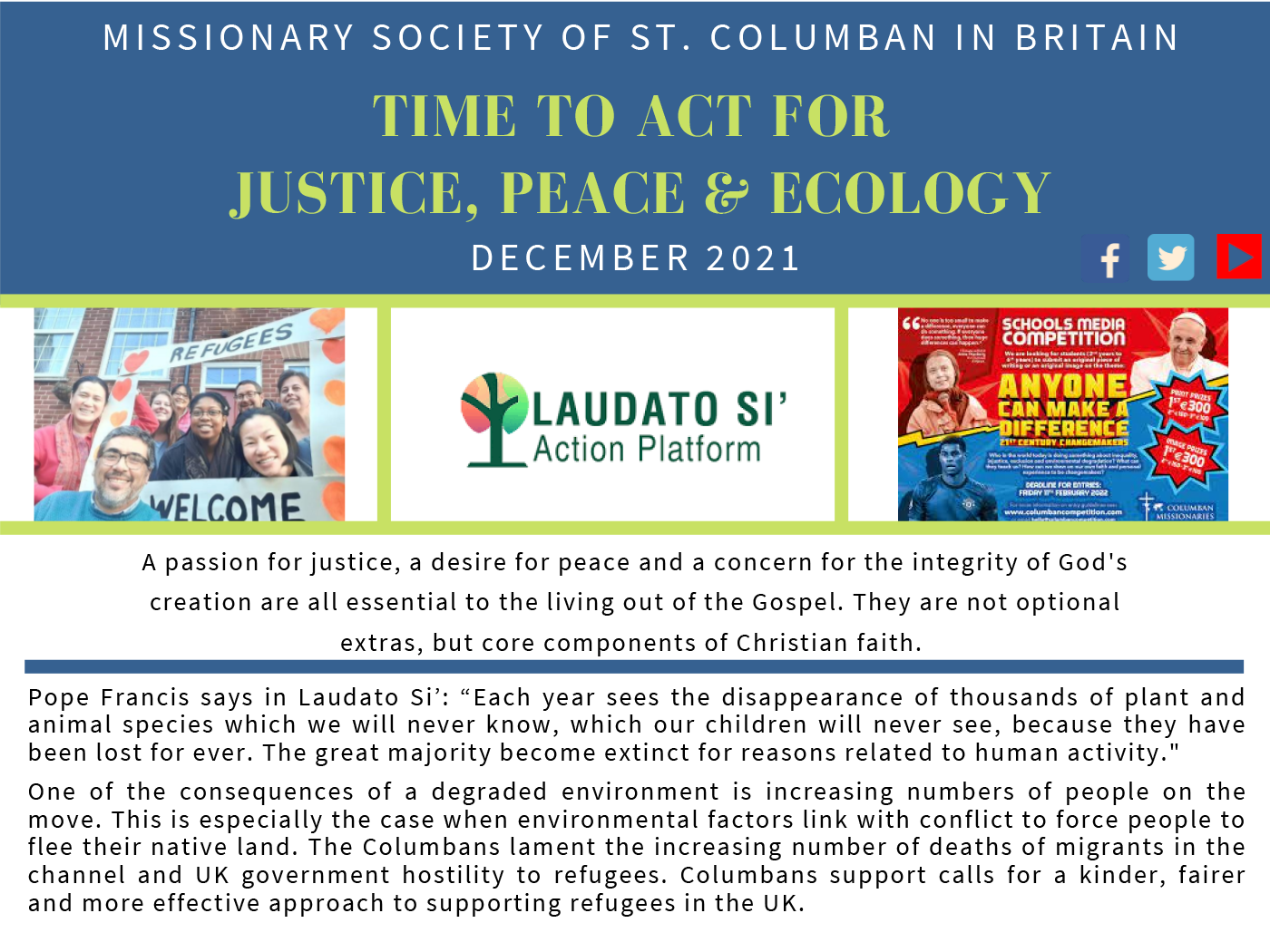Fourteen years ago I visited an experimental “permaculture” farm near Manila, run by the Columban Fathers. There were so many shades of green, lush vegetation and all kinds of fruit trees – mangoes, bananas, coconuts. I marvelled at rows of food crops and worm composting turning kitchen and garden waste into nutrient-rich compost. Buzzing of insects and birdsong filled the air. The soil, vegetation, trees and air were all full of life, and moist.
The Philippines is one of the world’s biodiversity hotspots. But, sadly, a hotspot where destruction of biodiversity is having enormous negative impacts both on the planet and on human wellbeing.
Various UN reports have shown that, globally, many services nature provides us – such as fisheries – are under severe stress, mainly because of habitat loss. The implications are profound for humanity and for efforts to tackle poverty and climate change. Species are now becoming extinct at a rate 1000 to 10,000 times higher than the “natural rate”. One quarter of the world’s mammals and one eighth of the birds and higher plants may be extinct by 2050.
That’s a problem because we rely on at least 30,000 edible plants for our food and more than half of commonly prescribed drugs are derived from natural products.
The next Conference of Parties (COP) 15 meeting on the United Nations Convention on Biological Diversity will be held in Kunming, China 25 April-8 May 2022. The Convention legally binds the 196 nation signatories to conserve biological resources, use them sustainably, and share the benefits arising from their use fairly. But it is poorly implemented.
All the world’s major faiths ascribe the variety of life on Earth to divine creation and urge followers to respect and care for nature. Creation theologian Sean McDonagh warns that, “sooner or later, extinction will rob our planet of the ability to sustain many forms of life, possibly even our own”.
Modern destruction of the natural world has been called “sinful” by the bishops of the Philippines. They have tackled the destructiveness of extractive industries. Missionary groups too feel that the context of mission has changed, and it must incorporate care of God’s creation. The environment encyclical of 2015, Laudato Si’, contained a chapter on Biodiversity. This was picked up last year in the document, ‘The Wailing of God’s Creatures’, commissioned to the Laudato Si’ Research Institute by Catholic organisations CIDSE, CAFOD, and the Laudato Si Movement.
So, faith groups are planning to engage with the UN Convention COP15 in China. It is an important opportunity for policy advocacy as well as for education and action. The Laudato Si’ Movement, Union of International Superiors General (UISG), and the Columbans are amongst those with a robust voice calling for the protection of all life on the planet.
The Missionary Society of St. Columban has produced two podcast mini-series about the beauty of biodiversity and the threats it faces. The study guide and embedded video links are available on Columban websites. The sixth and final podcast in the first series, title ‘A New Beginning’ saw Fr. Joshtrom Kureethadam, Coordinator for ‘Ecology and Creation’ at the Vatican Dicastery for Integral Human Development, speak about how to reimagine the Biblical vision of Jubilee for the 21st century and restore those elements of God’s creation that are threatened. The Laudato Si’ Action Platform has been launched by the Vatican. Fr. Kureethadam suggests that action over the next seven years should involve: Reducing fossil fuels and promoting renewable energy; Defending all life on Earth; Sustainable economics, including ethical investment; Adoption of simple lifestyles; Ecological education; Ecological Spirituality; and Caring for Creation in local communities.
In our age of ecological crisis, people of faith are increasingly involved in building a movement to care for our common home. The challenges are immense. In Australia, the toll of wildfires on wildlife between June 2019 and February 2020 included 143 million mammals – such as koalas and wallabies – 2.46 billion reptiles, 180 million birds, and 51 million frogs. And thousands of fires in the Brazilian Amazon have been similarly destructive.
Pope Francis says in Laudato Si’ that other species have intrinsic value independent of their usefulness to humanity. In paragraph 33 he wrote:
“Each year sees the disappearance of thousands of plant and animal species which we will never know, which our children will never see, because they have been lost for ever. The great majority become extinct for reasons related to human activity. Because of us, thousands of species will no longer give glory to God by their very existence, nor convey their message to us. We have no such right.”
One of the consequences of a degraded environment is increasing numbers of people on the move. This is especially the case when environmental factors link with conflict to force people to flee their native land. The Columbans lament the increasing number of deaths of migrants in the channel and UK government hostility to refugees. Columbans support calls for a kinder, fairer and more effective approach to supporting refugees in the UK.
May God bless us with wisdom to care for the Earth.
And may the Lord who established the dance of creation,
who marvelled at the lilies of the field,
who transforms chaos to order,
lead us to transform our lives and the Church
to reflect God’s glory in creation.
Amen.
CAFOD

